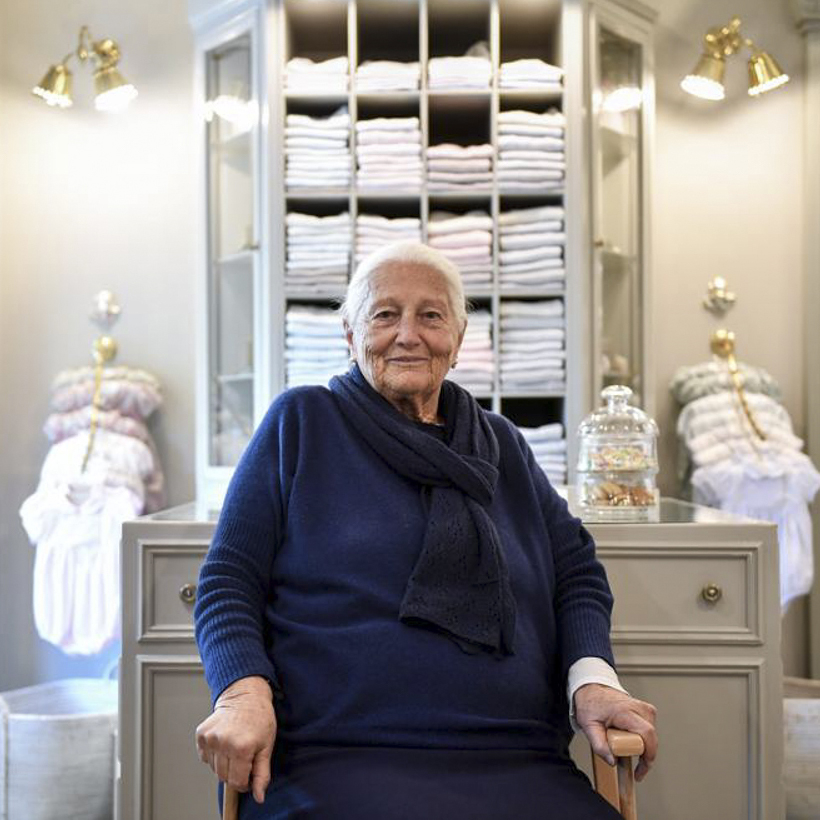Pupi Solari’s eponymous clothing store, nestled in Milan’s quaint Piazza Tommaseo, is on the opposite end of town from ritzy Via Montenapoleone, where the city’s stylish sciure flock to buy the latest in high fashion. Yet a certain in-the-know crowd has shopped there for half a century.
Solari, 96, used to live next door, in Casa degli Atellani, which shares its courtyard with the Cenacolo Vinciano, home of Leonardo da Vinci’s Last Supper. Up until recently, she operated a boutique in the nearby coastal city of Genoa as well, and sold men’s and women’s clothing in both shops. Over the years, Gianni Agnelli, Giorgio Armani, and members of the Borromeo and Loro Piana families have been among her roster of clients. In 2018, she decided to close all of that and exclusively sell children’s items in her Milan store—just like when she first opened up shop, 50 years ago.


